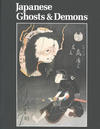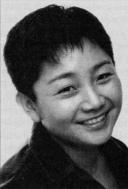Hiromi Goto
Interviewed by Gavin J. Grant
|
|
|
Hiromi Goto's third novel, The Kappa Child, won The Tiptree Award and has been nominated for the Sunburst Award. Goto was born in Chiba-ken, Japan, and immigrated to Canada with her family in 1969, eventually arriving in Alberta. Her first novel, Chorus of Mushrooms, examined the immigration experience of Japanese Canadians through the lives of three generations of women in a Japanese family living in a small prairie town. That groundbreaking work was the 1995 regional winner of the Commonwealth Writers' Prize for Best First Book and co-winner of the Japan-Canada Book Award. Her second novel is a young adult novel, The Water of Possibility. Goto and her family have just moved to British Columbia. |
 |
 |
 |
 |
 |
 |
 |
 |
 |
 |
 |
 |
 |
 |
 |
 |
BookSense.com: Your new novel, The Kappa Child, concerns a Japanese-Canadian family who move from British Columbia to the Canadian plains. I wondered how much of the novel came from your life? Were you brought up in the plains?
Hiromi Goto: The geographical move from Japan to the west coast and then to the prairies, is one that I experienced as a child. I develop many ideas for stories and novels from my life and fragments of every day. My job as a writer is to take these experiences and shape them for a specific effect, though it goes without saying that what I'd intended may be a long route to something else altogether.
Little House on the Prairie was a text I'd read as a child that became a point of reference when my father told us we were moving to Alberta. As an adult, I look back to how my childeyes saw, and the ironies and humor are a rich source of story. Our family moved to the prairies when I was 12. I lived in a small town that had a population of 1,300.
This is your second novel that involves kappas. What about them is so fascinating?
You could say I was a bit obsessed about them. Kappas are creatures that exist in the twilight between humans and monsters. Originally they are thought to have been water gods, but their cultural forms have become material for folk legends rather than spiritual entities. They range from monstrous to comical to benign to benevolent, and it's this changeable nature I find so beguiling. And, of course, their appearance is totally astonishing.
When my father first described kappa to me as a child, my imagination ran wild. They were so strange: a bowl-shaped head that held water that gave them supernatural powers, a beak-shaped mouth, a tortoise's shell on its back, green and walking upright, fond of cucumbers, and the size of a young child. And what they did! Drown children, pull the entrails out of livestock through their anus...you can see how a child would become fascinated! For a writer, such a rich cultural creature is a wonderful element to explore. Especially if you take the creature out of its traditional landscape and narrative and transplant it in an environment not its own. How would it manifest? What would be the effects?
The main character in The Kappa Child is addicted to cucumbers. Do you like them?
Whatdya think?
What other spirits or tales interest you?
Oh, I could go on and on! Reading about folk creatures, ghosts and monsters from cultures all over the world provides much mulch for a writer's imagination. It's also fascinating to see that there are archetypes that leap time and continents, as well as figures who seem absolutely unknowable. And contemporary North American interest in aliens seems to me to be an extension of our human desire to intersect with the mythological.
In my children's adventure novel, The Water of Possibility, the heroine finds herself in a world peopled with creatures from Japanese folk legends. Many of my favourite creatures make their appearance, such as the shape-changing fox (also found in Chinese mythology), a Yama-uba (Mountain giantess), tanuki (mischievous creatures whose appearance is a cross between a badger and a raccoon who also have shape-shifting abilities), and magic cats.
Many forms of fear are culturally learned; what is frightening for one culture is not for another. I find Japanese ghost stories to be far more psychologically frightening than ones I've read in North America. I'd like to explore the nuances of learned fear in a future novel.
In writing about the kappa in Canada, you get to write about the way cultures meet and change when people move to another country.
This is an idea I was exploring more in my first book, Chorus of Mushrooms. In The Kappa Child, I was more interested in the magical elements that a kappa would bring into North American terrain. One answer to the question, "What if...?"
Do you feel with your books that you are building bridges between Canada and Japan?
Hmmm. Not exactly. For one thing, what I know of Japan I know as a Japanese Canadian, which is far different than knowledge gained (and confined) as a citizen. Not to mention the myriad ways of knowing a nation within the hybridities of (not)being "Japanese" in Japan if you're of a non-Japanese background, etc. For people who know next to nothing about Japan maybe my books could serve as a starting point on a journey if they were interested in, say, folk legends. Or exploring other texts written by of-color writers. Ultimately, my two recent novels have very little to do with Japan, physically. The narratives are written from a distinctly Canadian standpoint. If there have been bridge-building tendencies, perhaps they would be between the conceptual gulf that exists between of-color North Americans and white North Americans who self-identify as "not having a culture."
The Kappa Child is your third novel; all of your novels have been very well-received. How long does it take you to write a novel? Do you have a daily writing routine that you keep to? How has it felt to get recognized for your writing?
To date, it takes me anywhere from one year to seven years to complete a novel. I'm hoping to develop a strategy so that I'll have a book every two or three years. I often read about authors who write every day for four hours or commit to writing three pages a day, etc. How disciplined, I think, and shake my head, and stare dejectedly at my messy desk. It's six o'clock and I haven't even put on the rice, if I hurry it'll be steamed by the time I've started boiling dumplings, what a shitty idea to make dumplings today, and I hadn't even started mincing the damned cabbage. "What's for supper," my beautiful monsters cry from the living room, "What's for supper," they chirp and their hungry limbs unravel from their bodies, stretching across the hardwood, unfurling to tap, tap, tug, tug on my T-shirt, I thrust some carrot sticks into their hands and they retreat, the sound of crunch, crunching over the television blur.
If I have a contractual deadline I do have a writing schedule. I write five pages a day for one month. If I don't have a deadline I write when I can't stand not writing anymore. I spend more time thinking about ideas than writing them down, though I do keep a notebook. And every time I finish a novel it feels like a fluke. Lookit that! I think. That's a novel! Where did it come from? Did I do that? It's similar to that feeling when you're driving but not paying attention to the drive and before you know it, you've arrived and you can barely remember the route you've taken. Though this might be linked to my terrible short-term memory more than creative process....
I think I've been blessed with the reception of my books. They've all been published with small presses who are willing to take chances on unconventional texts (Let's support small presses and independent booksellers, folks!). My first novel, Chorus of Mushrooms, has been picked up by universities across Canada and is often used in various English classes. So this gives it a longer shelf-life than most first novels. That my writing is recognized and remains in print tells me I'm on the right track.
In The Kappa Child, the main character is pregnant. Did being pregnant inspire you to write?
Pregnancy was an interesting experience. Not only in physical changes, but in the changes of the behavior of people around me. Like most other things, people have preconceived notions of what pregnancy "is like." There seemed to be two camps of behavior on the part of the expectant mother. (This is especially reinforced through depictions of pregnancy in popular culture.) The I-love-my-unborn-child-see-me-glow-I-am-Earth-Mother camp and the What-is-this-parasite-doing-inside-me-it's-an-alien-I'm-gonna-die camp. I wanted to explore a different terrain. Writing is one way for me to explore ideas or thoughts. Being pregnant made me revisit the body and my perception of the body.
Did having children change the way you wrote, and what you wanted to write about?
I don't know if it changed the way I wrote in an overt way. Changes come to the writing all the time through external forces, so in that sense I suppose it was of influence. As for what I wanted to write about, I initially started out with no plans of writing children's literature. When I first started telling people I was a writer, many people immediately assumed I wrote children's books because I was a woman. What's with that? I thought. So I decided I wouldn't write children's books to reinforce their notion that women writers only wrote children's books. (I was still young and a lot more knee-jerk!) But after I started going to the library with my children and reading them books, it became increasingly apparent that there weren't a great many books with children of color at the center of the texts. I was looking for high-quality fiction with a variety of "themes" and a wide range of genres, but the bulk of the stories that had children of color as the central character seemed limited to "of-ethnic-interest" types of scenarios, or a story dealing with racism. Children of color were seldom depicted as having adventures, solving mysteries, saving lives, falling in love, etc. After several years of frustration I thought, Okay! It's not out there! You're a writer. You do it! Our children want and need their adventures, too! So this item has been added to my writerly agenda. On a side note, having children has changed what I read and watch in terms of movies. My threshold for witnessing depictions of violence has dropped in a profound way.
Besides being a full-time mother, what kinds of jobs have you had? Have you ever (like the main character in The Kappa Child) been a shopping-cart collector?
Creative writing instructor, editor, landscaping laborer, pesticides crew for Parks and Rec (how stupid was that?!), delivery person, mushroom-picker (no shit!).... I've never been a cart-collector but maybe after the children have left home...
The Kappa Child focuses on the relationships between adult siblings. Would you like to talk a bit about what it is that interests you about that?
Family is extremely important to me. The families we choose to call our own, the one we are born into, the ones we come from...the permutations of family in our societies are rich and varied. It seems to me that a great deal of time and energy is spent coming to terms with family, and, for me, it becomes a way of knowing a person. When I meet someone new, I like to find out how they feel about their family, and what kind of relationship they had/have. So much of our behavior has been formed through the influence of family dynamics or as the direct result of separation from family. I've been lucky enough to have siblings. We're all very different, and I think it's quite bizarre and amazing that we come from the same gene pool. Trying to interact with my sisters on terms not limited to my own has been a fruitful enterprise.
Is it the people on the various edges and borders between different areas of society that interest you?
I suppose it depends on how edges and different areas are defined. Or self-defined. It's a question of vantage point. One thing I'm not interested in doing is replicating existing mainstream narratives.
Have you come across any authors writing across borders and genres the way you do, and can you recommend any of their books?
Ashok Mathur's Once Upon An Elephant and The Short and Happy Life of Harry Kumar. Larissa Lai's When Fox Is A Thousand and her upcoming novel, Saltfish. Nalo Hopkinson's Brown Girl In The Ring and Midnight Robber.
Do you write in English?
Yes. I also integrate Japanese words for my Japanese Canadian characters who are bilingual. This is the language I speak with my sisters and bilingual friends. Much of it remains untranslated in my texts because, although books often make transparent the translation for narrative purposes, language in everyday life doesn't work that way. We don't live with universal translators. If you don't know the word, meaning is not always accessible. What then? You ask someone or you look it up. Or you don't bother and you never know. I'm not interested in writing novels that ultimately narrow down into a "We're actually all alike" kind of mentality. Very real differences exist across all spectrums of human interaction. I'm interested in making language "real," not smoothing over the difficult terrain.
Have you ever translated any books or stories?
No, though I often write feminist revisions of traditional Japanese folk legends.
What are you reading?
The Summer Book by Tove Jansson. Japanese Ghosts and Demons edited by Stephen Addiss. Kori: The Beacon Anthology of Korean American Fiction edited by Heinz Insu Fenkl and Walter K. Lew.
If you worked in a bookshop, what would be on your staff picks shelf?
- The Woman Warrior by Maxine Hong Kingston.
- Midnight Robber by Nalo Hopkinson.
- When Fox Is A Thousand by Larissa Lai.
- Furious by Erin Mouré.
- Her Smoke Rose Up Forever by James Tiptree Jr.
- The Toughest Indian in the World by Sherman Alexie.
- The Neverending Story by Michael Ende.
- Eden by Stanislaw Lem.
- The Moomintroll books by Tove Jansson.
- Loveruage by Ashok Mathur.
- Exile and the Heart by Tamai Kobayashi.
- Mama Day by Gloria Naylor.
- The Wives of Bath by Susan Swan.
- The Xenogenesis trilogy by Octavia E. Butler.
- Tehanu by Ursula Le Guin.
- A Land To Light On by Dionne Brand.
Do you have a favorite bookshop?
Currently it's a secondhand bookstore called Fair's Fair[1] in Calgary. It has an enormous science fiction and fantasy section, and lovely older books from the '50s to '70s. My favorite bookstore in Toronto is The Women's Bookstore.[2] Everyone please support your local independent bookstores!!!
The Kappa Child
Author photo by Marnie Burkhart.
[1] 1430, 1609 – 14 Street SW, Calgary, Alberta T3C 1E4, Canada. (403) 245-2778; Fax: (403) 236-7460; fairsfair@shaw.ca; http://www.fairsfair.com/
[2] The Women's Bookstore, 73 Harbord Street, Toronto ON M5S 1G4, Canada. (416) 922-8744; Fax: (416) 922-1417; info@womensbookstore.com; http://www.womensbookstore.com

